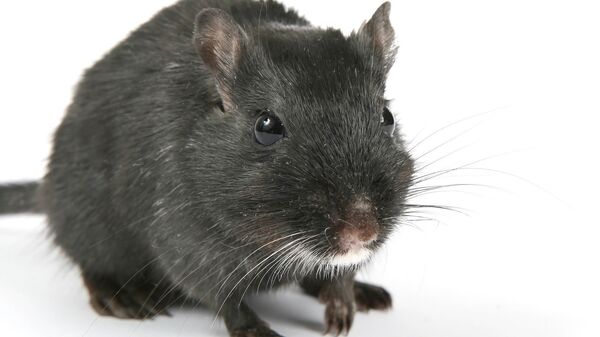The effect was achieved by implanting an optic fiber into mice's brains, and beaming lasers at specific neurons. The technique is known as optogenetics, and has been trialed in a number of experiments in recent years, most famously to manipulate the sleep patterns of fruit flies, and wipe and restore rats' memories. By modifying neurons so their ion channels become sensitive to light, lasers can then stimulate those neurons and ‘switch' them off and on.
Circuit dissection of how central amygdala controls aggression https://t.co/0BS4y39gkr pic.twitter.com/Dka5vkYW9C
— Adam J Calhoun (@neuroecology) January 12, 2017
The 'killer mouse' experiment, conducted by a group of researchers at Yale University in the US, looked at neurons in the amygdala, the region of the brain responsible for activating emotional and physical behaviors. The researchers identified two distinct sets of neurons in the mice, which drove two distinct but complementary behaviors — pursuing prey, and biting.
When these neurons were 'switched on', test subjects became highly determined and able predators, viciously attacking objects placed in their vicinity — including bottle caps, twigs and live crickets.
A history of optogenetics and amygdala stimulation: exploring the killer instinct… https://t.co/V3tvzfFV79 #killerinstinct #hunt
— Fabiano Sillo (@fab_fromhell) January 13, 2017
Optogenetic experiments have been conducted on humans, although as yet research has been limited to whether such processes can be used for pain relief and neurological disorder treatment. The prospect of humans being turned into efficient, unthinking killing machines is a chilling one, evoking the fantastical plot of The Manchurian Candidate, the classic 1959 conspiracy thriller about a soldier who is brainwashed into being an assassin for the Soviet Union. However, is this a remotely credible prospect?
Professor Thomas Knöpfel, chair in optogenetics at Imperial University, warns against reading too much into the experiment's findings.
"While the conclusions raise several interesting philosophical questions, and optogenetics will almost certainly be used to do quite amazing things for humans in years to come, we shouldn't get too carried away. Ethics constraints will of course mean the type of experiments conducted on humans, and the type of results sought, will not be too adventurous, and focused on securing health advances and benefits," Professor Knöpfel told Sputnik.
Moreover, he notes the results of experiments on mice cannot be directly transposed to humans — after all, a human brain is much more independent than a mouse's brain. In any event, the study's own findings suggest programmed, indiscriminate drone killers — whether of the mouse or man variety — cannot be created by optogenetic processes. For one, test mice's appetite for destruction waned with larger objects, particularly if the objects were moving, and fellow mice — they would instead look for smaller prey, rather than attack their brethren.
Similarly, mice were found to attack with much less urgency when they'd recently been fed — evidently, the ‘switch' does not override all other thoughts or impulses. In essence, the experiment merely induced natural predatory behavior artificially. While humans are believed to have ingrained hunting processes, these are associated with specific geographical and environmental conditions — packs of people in wild conditions, for example.
Human hunter gatherers in the 21st century are much more likely to race to a sandwich shop to satiate themselves, rather than slaughter the nearest edible creature.




